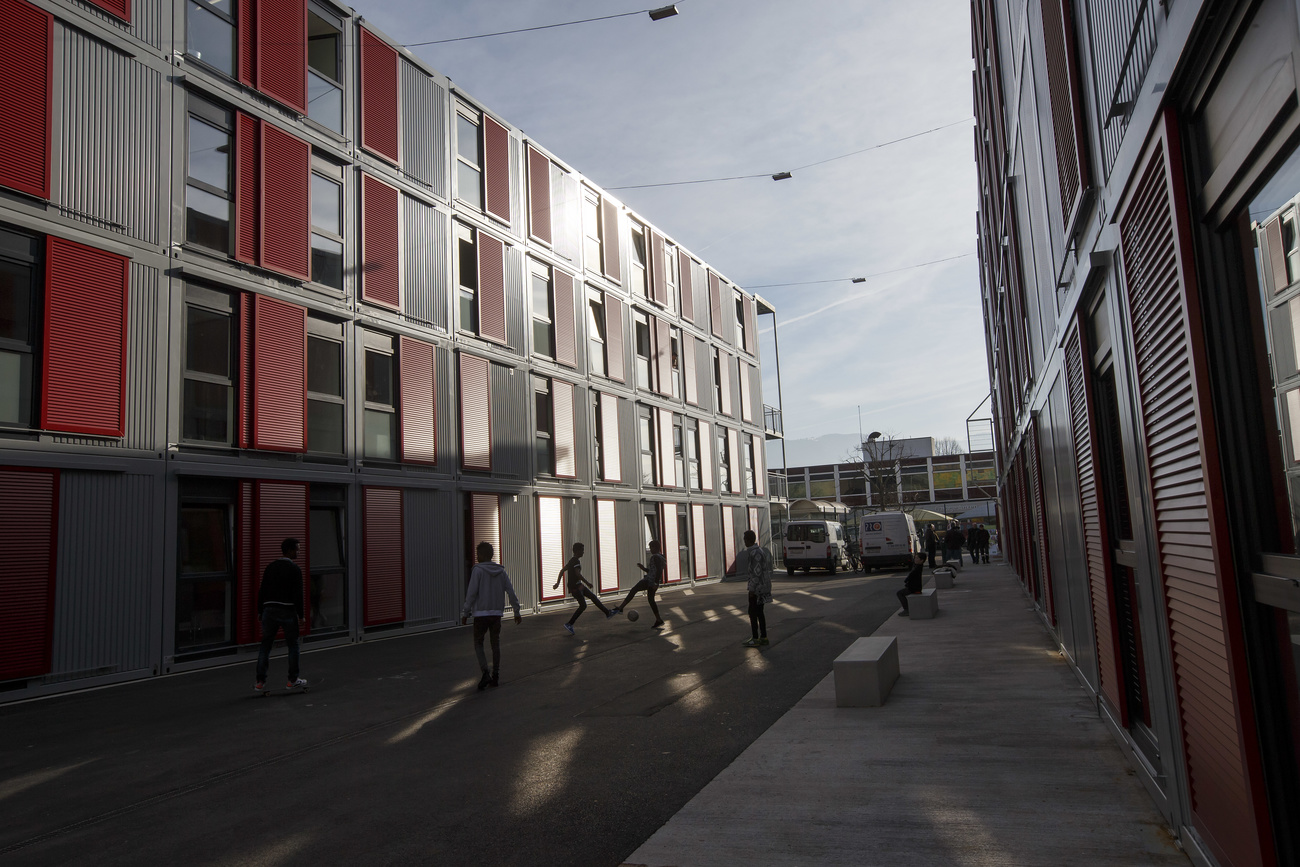Swiss parliamentary committee backs plan to deport asylum seekers

A committee of the Swiss House of Representatives has approved a scheme to repatriate rejected Eritrean asylum seekers to Africa via a third country, such as Rwanda. Just this week, the British Parliament passed a similar bill—the so-called Rwanda bill.
The House of Representatives’ relevant committee has approved the Radical-Liberal Party’s controversial proposal for a Swiss asylum agreement by 14 votes to 11.
The proposal, which was approved on Friday, comes from Petra Gössi, a member of the Radical-Liberal Party in the Senate. The Senate supported her idea of repatriating Eritreans via a third country, although Justice Minister Beat Jans and his office warned that the idea could not be realised.

More
Steep rise in deportation flights from Switzerland
Opposing opinions
Balthasar Glättli, a member of the House of Representatives from the Green Party, is convinced that this idea is doomed to failure. “The problem is and remains that Eritrea does not accept returnees from any country unless they return voluntarily.”
“Whether you fly them to a third country in between and then back again at the taxpayers’ expense—that only makes the bill higher, but the result is no better,” explains Glättli.
+ More about the Swiss asylum system and how it works
Martina Bicher, member of the House of Representatives from the Swiss People’s Party and the state policy committee in the House of Representatives hope that a deportation plan via a third country could act as a deterrent.
“We have also decided that there should now be a mediator on the ground. Consequently, we are already one step further than we were back when we first attempted this proposal,” says Bicher.
The initiative is tricky and has already failed once in the past, says Andy Müller, Federal Parliament editor at Swiss public television SRF. Not only is it highly uncertain whether the deportation of Eritrean asylum seekers via a third country would work, but it is also legally delicate.
Switzerland could risk being condemned once again by the European Court of Human Rights. “But none of this seems to make much of an impression on the centre-right majority in the House of Representatives’ preliminary committee, as it did in the Senate. It’s probably mainly about sending a signal.” This indicates a desire for a stricter asylum policy, leaving no stone unturned.
Controversial deportation practice failed once before
In 2003, Federal Councillor Ruth Metzler already suggested a transit agreement with Senegal. Under this proposal, rejected asylum seekers from Switzerland were to be transferred back to Africa via Senegal. However, Senegal withdrew from the agreement shortly afterwards.

More
Asylum returns from Switzerland rose by a fifth in 2023
After weeks of discussions, British Prime Minister Rishi Sunak pushed a law on the controversial asylum pact with Rwanda through Parliament only this week.
The agreement with Rwanda stipulates that migrant who irregularly enter the United Kingdom (UK) will no longer have the opportunity to apply for asylum in the country.
The law declares Rwanda a safe third country. This circumvents a judgement by the highest court in the UK.
The UK Supreme Court declared the asylum pact unlawful in November, citing doubts about the rule of law in Rwanda. The government wants to use the law to prevent appeals against deportations before British courts in future.
The House of Lords had passed several amendments, which were then reversed by the House of Commons in a time-consuming process.
In the end, the House of Lords gave up its opposition. The bill can now come into force with the signature of King Charles III.
Translated from German by DeepL/sp
This news story has been written and carefully fact-checked by an external editorial team. At SWI swissinfo.ch we select the most relevant news for an international audience and use automatic translation tools such as DeepL to translate it into English. Providing you with automatically translated news gives us the time to write more in-depth articles. If you want to know more about how we work, have a look here, and if you have feedback on this news story please write to english@swissinfo.ch.

In compliance with the JTI standards
More: SWI swissinfo.ch certified by the Journalism Trust Initiative






















You can find an overview of ongoing debates with our journalists here . Please join us!
If you want to start a conversation about a topic raised in this article or want to report factual errors, email us at english@swissinfo.ch.